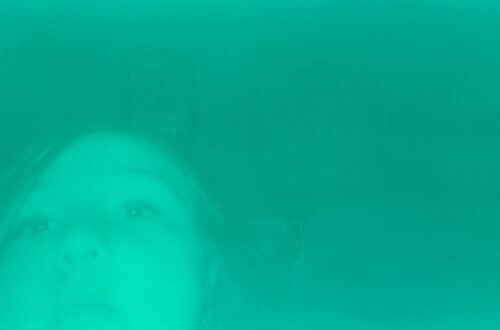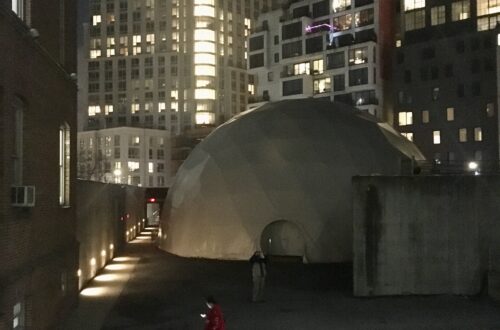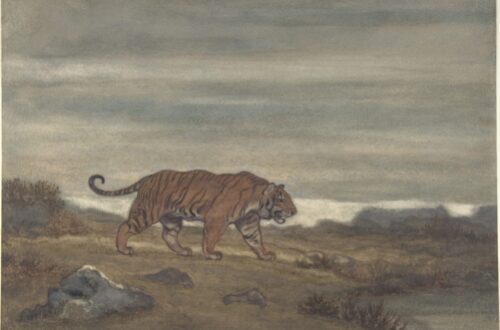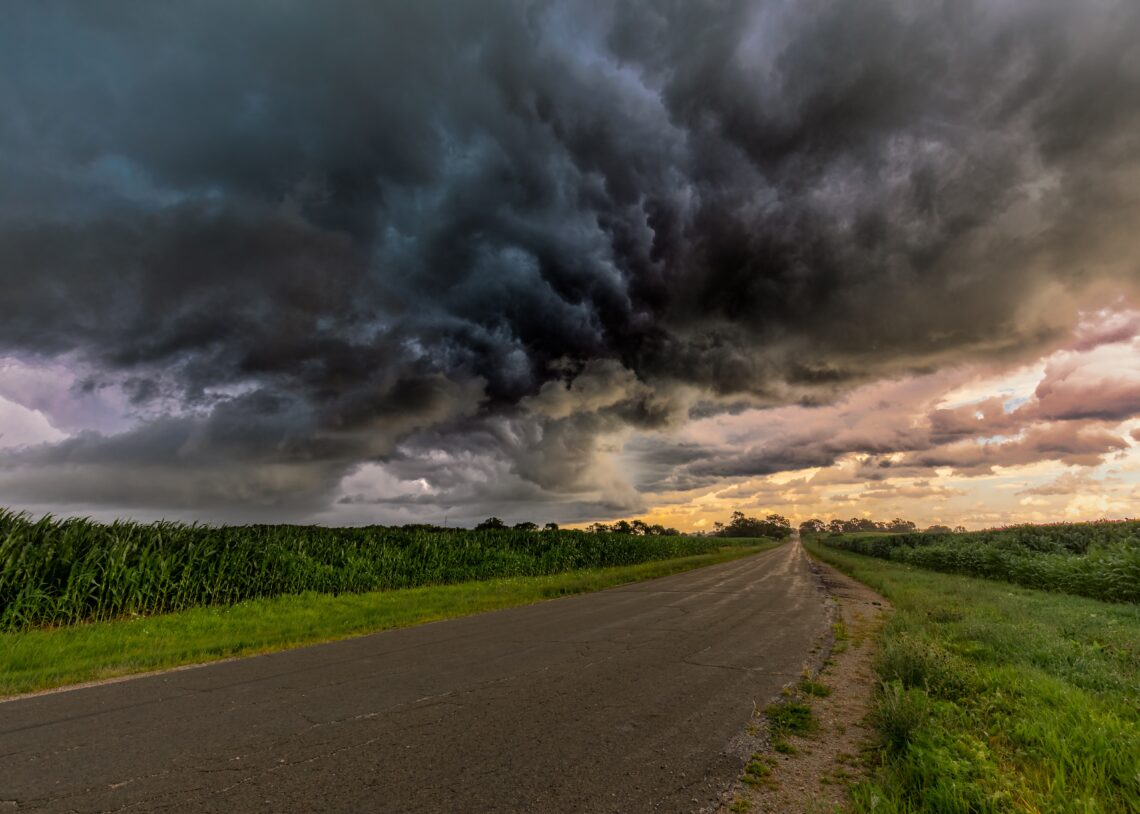
Kein Baby by S. C. Beckner
Editors’ Note: this story depicts emotionally difficult subject matter. Readers sensitive to topics of domestic violence and infant loss are advised before reading.
It was a Friday night after a high school football game the first time I was afraid of Edward. We’d been matched up as board game partners at a mutual friend’s house ten months before, after briefly meeting in church. His eyes were the first thing I noticed about him while we dominated as Password partners. They were a startling electric blue that I imagined fell somewhere between “B” and “V” on the ROYGBIV scale of the color spectrum−more Halls Mentho-Lyptus Drops, but not quite an icy blue-violet flame. The color intensified, shimmered even, when the summer sun tanned his face golden.
The summer before that Friday night, my head dizzied whenever Edward strode up the walk to my parents’ front door, sometimes carrying a bouquet of flowers––scraggly and wild––that he’d stopped and picked along the side of the road somewhere between wherever he’d been and my house. He usually wore a sleeveless shirt, almost always plaid, with pearly snaps instead of buttons. The sleeves, long since ripped away, left deckled edges like tiny feathers that framed his toned deltoids. On the bottom, Levi’s jeans, and cowboy boots. We were high school sweethearts––me, 15 when we met, Edward 18 months older. People at church either mistook us for blonde siblings or commented on how beautiful our future children would be. “Sure to be towheads,” they’d say. I was in no hurry yet to get married. I hoped to leave our small town for college.
*
That Friday night, my friend Lou and I met up with her brother, Wade, and Edward to go to the last home football game of the season. Lou and I walked to the pizza joint across the highway from the football field, ordered a pizza to go. The four of us were going back to Lou’s house after the game to watch a movie that was pre-approved by their Baptist minister whom they called “Brother Tim.” Brother Tim had a list of films approved by himself and the Father, Son, and the Holy Ghost that his parishioners were permitted to watch. (I guessed the Holy Ghost was scarier than the Holy Spirit I’d learned about in Catholic mass with my grandmother.) The Wizard of Oz was Lou’s mom’s first choice. I didn’t want to see The Wizard of Oz again. Lou borrowed a copy of Top Gun––a film strictly forbidden. We planned to watch after her dad left for his night shift at the Ford plant and her mom was sound asleep, blindfolded by her black-satin sleep mask. I’d seen the film already, 13 times at a weekend sleepover a few months earlier––a rebellion. A sweaty, shirtless Tom Cruise, Val Kilmer, and nameless others playing volleyball in the late-afternoon glow of Miramar, California to the tune “Playing with the Boys” was enough to get the film banned from Brother Tim’s list. It would cause the young to commit the sin of lust. But then there was the bedroom scene. Tom Cruise and Kelly McGillis in the dusky blue light of her bedroom, tongues everywhere––soft-core porn in the eyes of Brother Tim and the church. I liked the volleyball scene. I was still a virgin, a pure girl worthy of a ring, who’d only flirted with fornication.
*
The pizza took longer than expected. When we got back to the high school parking lot to meet Edward and Wade, there was no sign of them. Edward’s truck was gone. So, after one last cruise around the parking lot, Lou and I headed to her house west of town. The cacophony of cheers from the opposing team’s bleachers faded and the scoreboard read “Home 6” and “Away 24” in the rearview mirror.
I rested my head back on the passenger’s seat of Lou’s Ford Thunderbird, closed my eyes. We were scream-singing Peter Gabriel’s “Sledgehammer,” another rebellion, as we sped down winding back roads. We crossed the bridge that ran between corn fields just south of Lou’s house when a pickup truck suddenly appeared behind us. I turned halfway around in my seat, squinted my eyes against the strobe of flashing lights, and tried to see who it was. The truck barreled around us and abruptly stopped sideways, blocking the road. My hands flew out to the dashboard to brace myself as Lou slammed on the brakes.
“Who is that?” I asked Lou. My heart pounded beneath my sweatshirt.
“Edward, dude, don’t be crazy!” I heard someone shout.
When my car door flung open, the sharp, late-October wind took my breath and the smell of cheap beer hit me. Edward jerked me out of the passenger seat––the pizza box landed, lid down, in the road. He shoved me back a step. My head flopped backward like it was on a spring and bounced off the car. I shook my head back and forth, stunned.
“Dude!” Wade screamed. “Calm down!”
“I told you to meet us before you left!” Edward screamed, as he shook me by the shoulders, slamming my body into the car. I turned my head to one side and closed my eyes tight to dodge the spittle that flew from his mouth.
“What…?” I tried to say, still confused.
“Edward! Stop!” Lou shouted.
I didn’t try to speak again. Instead, I focused on breathing around the lump in my throat.
“Get your ass to the house,” Edward said. He stomped his foot and gave me one last shove toward the inside of Lou’s car. I fell sideways into the passenger seat. Edward got into his rusted-out pickup, still idling, and took off with Wade’s leg dangling from the passenger side, the door still half open. Tires spun and sprayed pea gravel into the air. The exhaust from his truck hung in front of Lou’s car like a dense, disorienting fog. I sat in the passenger seat and stared down at my pant legs and the half-moons of grease left behind by the abandoned half-cheese, half-pepperoni pizza. Lou didn’t say a word as we drove the last couple of miles to her house.
“I’m going to bed,” I whispered to Lou when we got there. Wade and Edward were loading Top Gun into the VCR.
“Are you sure?” Lou asked. “You don’t have to sit next to him or anything. We were going to have popcorn since the pizza…”
I nodded in response and forced a hoarse “yes” from my throat, tight like a white-knuckled fist.
“Suit yourself,” Lou said.
“Where’s she going?” I heard Edward ask Lou as I walked toward Lou’s room at the end of the hallway.
I didn’t hear Lou’s response.
I took off my jacket, pulled my hoodie up and over my head, and crawled into Lou’s waterbed, the waves beneath the rubber mattress turning my stomach. I folded my body in on itself and pulled the comforter over my head. My body tensed when Edward knocked on the door. I imagined him tapping with the knuckle of a folded index finger, his hands prematurely weathered with work.
“Hey, is this because of what happened?” Edward asked quietly. I thought of his mouth close to the door, his full lips, and how sometimes I’d have to wipe his saliva off my mouth when we made out.
I could hear the whooshing of my heartbeat in my ears.
“I’m sorry about before but…you know. I told you to wait for us.”
“Go away,” I said under my breath.
“Have it your way,” he said.
His footsteps fell heavy, then grew faint.
“She’s being a baby. She’ll get over it,” I heard him say to Lou and Wade.
*
I broke up with Edward after that night in the same way lots of teenagers break up, in that I just stopped talking to him. I carried my books around with me all day through the halls of our high school, so I didn’t run the risk of a confrontation at my locker. Edward brought me flowers––pink roses, the same shade of Pepto-Bismol pink I’d worn to prom. I’d found the gown on a discount rack. It was tea-length with silver threads that sparkled in just the right light, like I’d been dipped in stardust, and a handkerchief hemline. I wore pink shoes that didn’t quite match, kitten heels––each with a bow on the back. I’d bought them with the money I earned cleaning for my alcoholic grandfather every Saturday morning for a month.
Edward also slipped love notes, folded into lopsided triangles, through the metal gills in the top of my locker. When I finally opened it, they rained down like cockroaches falling from a kitchen cabinet in the dark. Each note was scrawled with a promise that he’d never behave that way again. He was only worried about me. He’d had too much to drink. If only I’d listened…
“Honey, sometimes men slip,” Lou’s mom had said. “You’re gonna have to learn how to behave like a good, godly young woman and keep that mouth shut before you get married. Men don’t like a woman who won’t do as she’s told.”
Other pearls of wisdom included directions like, “You have to be a whore for your husband. If you don’t, he’ll find another woman who will.”
*
The first time Edward asked me to marry him was the following October, a year after he pulled me out of Lou’s Thunderbird in the middle of the road. He presented me with a miniscule diamond ring that he’d saved for with what he earned baling hay that season and his bag-boy pay from Mac’s grocery across from the Shell station in town. Edward told my parents that if they didn’t consent to us getting married, he would take me to Jellico, Tennessee, where he said it was legal to get married at my age without parental consent. I didn’t know if that was true. Neither did my parents. I was enamored with the ring but recall my biting response as we sat in the cab of his pickup in the mall parking lot being something like, “Are you kidding? I’m sixteen?” We broke up again.
This time, my parents grounded me for breaking up with him.
“You have unrealistic expectations,” my mother said. “Boys with a work ethic like his aren’t easy to come by, especially around here.” I didn’t tell her about Edward pulling me out of the car for being disobedient the October before, but I’m not sure it would have mattered.
I thought about getting married then, escaping my parents’ house where someone was always fighting or the house was heavy with silence. I’d been shaken by Edward’s reaction to my not doing what I was told that night. Maybe if I’d waited for him as instructed in the parking lot, he never would have put his hands on me to begin with?
Lesson learned. Be quiet and compliant. Is this what love looks like? I wondered.
*
We were still broken up when Edward left for Army basic training the following June 1988. He wrote me letters about being away from Indiana for the first time, the sound of artillery fire, and how he made it through the gas chamber. I wrote back about how big my younger sisters had gotten and how much I missed him. I sent him a centerfold of Mariah Carey from my Teen magazine. On the bottom corner I wrote “This better be the closest you ever get to MC.” While he was in training that summer at Fort Sill, Oklahoma I worked at a local pizza joint. I hoped to save enough money to get an apartment before graduation. My mom and dad fought most days. If they weren’t fighting with each other, my mother and I were fighting.
“Who do you think you are? You can’t just take off and go to college! There’s no reason for you to leave Liberty!” my mother shouted often, usually anytime I mentioned what I wanted to do something after high school, something different than the life she chose.
*
I lost my virginity on a worn tapestry couch in my parents’ living room the night before our wedding. I made it through high school without doing it and gave in that night. I’d been too afraid to have sex, scared I’d be one of those girls we heard about in health class that got pregnant the first time. Premarital sex was a sin, a crime punishable by the god I was raised to fear. A god that I was reminded of at the end of each day when my father emptied the contents of his pockets onto our kitchen table, a hand-me-down from my grandparents––a handful of change, nuts and bolts he’d inadvertently taken from the factory he’d worked in (and always returned the next day), and a silver cross a little larger than a half dollar that he carried every day.
Edward pretended to have car trouble that blustery Thursday night in November. Vice President George H.W. Bush had just won the 1988 presidential election two days earlier. Television images bounced fragments of light off the whitewashed, wood-paneled walls of my parents’ living room. The brief pause between ABC’s Nightline with Ted Koppel and the commercial breaks left the room black, a few seconds at a time. Edward slid onto the couch behind me while I pretended to sleep. I don’t know why I didn’t say no. I could hear the stir of brittle leaves outside as he pulled my sweatpants down just far enough.
*
Less than 24 hours later, we were married in the Presbyterian church that I sometimes attended as a child. The church where the reverend had sprinkled drops of water onto my 5-year-old head, baptizing me in the name of the Father, the Son, and the Holy Spirit. I stood at that same altar almost 13 years later, my mother next to me wearing a burgundy gown made of crushed velvet––a compliment to the dark red ranunculus in my bouquet. Edward’s mother wore a pale-blue polyester dress, the color identical to his Halls Mentho-Lyptus Drops eyes. His mother was proud that she’d bought that one dress decades ago and worn it to each child’s wedding.
I’d always wanted to get married at Christmas, surrounded by candlelight and the smell of fresh Fraser Fir greenery. Instead, it was Veterans Day, 72 hours before Edward had to report to his unit in Hanau, Germany. We said our farewells the following Monday morning at Indianapolis International Airport. As we embraced, I buried my face in his chest. He smelled like English Leather and the wood stove in his parents’ living room.
“Why are you crying?” Edward asked with a chuckle. I could only shrug my shoulders in response. “You’re going to have to toughen up,” he said.
I stood at the gate and wept, not knowing how much time would pass before I saw him again.
A few weeks later the “+” sign showed up on the E.P.T. pregnancy test.
*
I spent much of that fall and winter at Edward’s parents’ house, both stories heated by a wood stove in the living room, where I slept on the couch. The house was down a long, rutted dirt lane that was sometimes rendered impassable during heavy summer rains or mid-winter snowstorms. I was cajoled from my bed on the couch often in the twilight of early morning to learn how to cut, split, and stack firewood. Skills any good Midwestern wife should have. My father-in-law would shake the end of the couch and ramble on about unworthiness of a fragile woman. “What good’s a weakling?” he’d say.
I worked in the kitchen with Edward’s mother, a surly woman full of backwoods knowledge and wit. She taught me how to prepare back strap meat from the processed deer that they’d hang from the sugar maple tree that stood at the edge of the drive. “A cast iron skillet is best,” she’d say.
Edward and his father, sometimes his brothers too, dressed in head-to-toe camo. Edward’s bow would be slung over his shoulder. That first Thanksgiving morning with his family, I’ll never forget the way steam billowed from the cavity of the freshly-gutted doe. I was overcome by emotion as I imagined the arrow hissing toward her through the trees, her wide eyes scanning the damp landscape for her baby––her youngling who couldn’t have been more than five or six months old, lost.
*
After several months in search of housing, I finally traveled overseas to be with Edward. We’d passed the time writing letters and making mix tapes. (“Right Here Waiting” by Richard Marx was always the first song on the tape) I’d buried the night Edward had pulled me from Lou’s car and longed to be with him. He’d finally found a tiny apartment in Hanau, off-post but deemed habitable by the military. It was a finished garage space owned by an older German man, Johann Ault. The large plywood sign that hung over our front door read “Johann Ault-Malermeister (master painter).”
I’d barely been out of Indiana. A family trip to Disney World when I was 7, funded by my grandparents, and a road trip to Muskegon, Michigan, with my other grandparents, to see my eccentric Aunt Mabel when I was 11 or 12. Nowhere else. I was almost halfway through my pregnancy by the time I was able to join Edward in Hanau, Germany.
I rode in the front seat of my parent’s midnight-blue Oldsmobile station wagon when we traveled to the airport in Indianapolis for my departure overseas. I balanced my mother’s mop bucket between my legs, careful not to miss as I wretched foamy bile in the dark of the early morning.
*
Eight hours after my high-school-sweetheart-turned-husband retrieved me from the airport in Frankfurt, Germany, I realized I was in labor. Sometime after midnight I began to pace the length of our small apartment. 37 steps from end-to-end. I made occasional stops to rub my belly and squat for relief. It’s from sitting too long, I told myself at each pitstop. I tried to convince myself the lack of water and movement was the cause of the strange, wave-like twinges that started in my lower back and then peaked in tightness across my belly. Or maybe it was the sex. I hadn’t seen Edward since he’d left three days after we were married. My secondhand copy of What to Expect When You’re Expecting talked about sex during pregnancy, but I didn’t think it could cause this. What if I did this?
“Maybe we should call someone,” I said.
“Call who? Everything’s fine. You should try to sleep,” Edward said from his side of the bed.
After more than an hour of pacing, I decided that maybe sitting on the toilet would ease my discomfort. I spent another hour sitting there, sweating, folded in two, feeling like I just needed to shit. It wasn’t until the urge to push started that I realized what was happening in my body. I reached down between my legs, felt the bulge of something maybe the size of a lemon, the palm of my hand bloodied.
“Call an ambulance!” I screamed at Edward. “What time is it?”
“What?” he asked. “Why do you want to…?”
“What time is it?” I asked again, strained and panting through bone-breaking pain I’d never experienced before.
“4:03,” he said.
The next one came at 4:06.
“Call an ambulance now!”
*
Shadowy flashes of memory jarred me from a medically-induced slumber. I had no idea where I was or how much time had passed. In those initial hours following the birth of my baby, months too early, I heard the muted exclamations: “Code blau! Code blau!” Alarms chimed. I fought to open my eyes, fearing I was the patient in distress. My lids too heavy to lift, my voice too weak to ask. Sand-papery sheets scraped my feverish skin.
My mind became one of those View-Master toys where random images tell a story with the click of a hand. Click. Edward and I were sitting on opposite ends of the couch in our tiny apartment eating post-coital mint chocolate chip ice cream from a cardboard container with flimsy plastic spoons. I was wearing nothing but one of his standard-issue gray ARMY T-shirts. Click. I was in the bathroom of our tiny apartment screaming at Edward to call an ambulance. Click. There was the sound of blood as it cascaded from the side of the ER gurney. It hit the floor like drops of crimson paint, splattering the linoleum canvas below. I could hear the shouting of nurses, the call for an ambulance from the local German hospital to retrieve me from that unequipped clinic on post.
“There’s no time to get you to the military hospital in Frankfurt,” Edward said, his face void of color.
Click. I was in the ambulance. The sound of sirens, different than what I was used to in the States. The baby rocked back and forth inside me with the sway of the Autobahn. I curled into myself, clutched my belly. Click. I was awake in the emergency room of the hospital hearing words like “Blutverlust” and “Notfall! Notfall!” My thin, pasty legs quivered in the frigid metal stirrups. A large mustached woman stood between them. Sweat dripped from the sides of my flushed face. I saw the plastic yellow razor in her hand as she whipped the sheet back like a matador waving a cape to expose not only my pregnant belly, tight with contraction, but also my poorly groomed strawberry-blonde bush. Her arm moved furiously between my legs.
“Sei ruhig,” commanded the mustached woman as my body convulsed.
Click. The room was different. Darker, except for the warm light, bright bulbs like flower petals, aimed below my waist.
“Drücken! Drücken!” a nurse shouted over and over in my face. Her paper mask had inched away from her mouth and onto her chin.
“I don’t know what the fuck you’re saying!” I leaned forward on my elbows and screamed in return.
I flopped back onto the gurney, my dingy hospital gown fell open and exposed my left breast. My body took over, pushing, working the baby, whose heartbeat I imagined thrummed like the wings of a hummingbird, the remainder of the way down through my narrow hips regardless of how intently I resisted. I cried out. Screamed for my mother. For God. For someone to make it stop.
Click. “I thought you were dead,” Edward said from a chair at my bedside.
Click. I was back in the ICU with an orderly in clover-green scrubs milking my collapsed veins for enough blood to check my hemoglobin levels.
If there was a memory of holding that premature baby I delivered with the hummingbird heartbeat, or a pink bonnet on her tiny head, it was gone.
*
I had to be able to walk the length of the ICU hall before I could be moved to another room. The world spun into black the first time the nurses pulled me from my bed. On day four, I made it to the hallway. One nurse stood at each side and supported my body weight at the elbows. My legs quaked with weakness. Blood ran down the insides of my legs, then pooled at my feet. With each step, my slipper-socked feet left a trail, bright red, haunting.
“Please no more. I’m so dizzy,” I begged. I wept and looked into the eyes of a blonde nurse whose name I didn’t know. “Nein walk, nein walk,” I said again and again.
“Ja geh. Ja geh,” the blonde nurse said. “Kopf hoch,” she said and took my chin in her hands to raise my head. “Nein schwindlig,” she made eye contact with me, nodded her head, and continued to lead me forward down the hall.
*
After I graduated from the ICU, I spent six more days on the maternity ward with two other postpartum women. Both had just delivered baby girls with heads full of charcoal-colored curls. The room was filled with their laughter, the cries of their newborns. The pungent cigar smoke of their visiting family hung thick in the air, then swirled about with their movement around the room like a murmuration of joy, celebration. My family was 4,300 miles away, except for Edward, who visited each day after work.
I spent days laying on my left side, facing the wall, and only moved as manipulated when the nurses came to draw blood. I refused transfusion. Maybe I would find my baby in the heaven I’d been taught about as a child, where loved ones waited for us on the other side. When visitors arrived to pass around the babies, I held my ears, wept into the mattress. Nurses came in and out. “Kein baby, kein baby,” they whispered to one another. No baby, no baby.
Each morning a nurse named Katrin brought me chamomile tea and toast. She sat the tray on my bedside table, then filled a wash basin with warm water and bathed me. First, my face, then the back of my neck and shoulders. She raised my arms, one at a time, to wash under them and then around my breasts, each one tender and swollen, preparing to feed a baby that no longer existed––no more hummingbird heartbeat. Then she patted my body dry with a towel, smoothed my hair with her cool hands.
“Muss essen,” Katrin urged.
I shook my head, my chin quivered as I said, “I don’t know what you’re saying.”
Katrin looked around briefly, as if searching for the translation there in the air around us, and repeated, “Muss essen.” This time she brought her fingers together to look like the beak of a bird and gently touched her mouth.
I sipped the honeyed tea, but never touched the toast.
*
The only English I heard on the maternity ward was spoken by the doctor who delivered my baby. He took the chart from the end of my bed during rounds, stood there in his white coat, thin, gold-rimmed reading glasses perched on the end of his pointy nose. He rattled off something to the nurse I couldn’t translate, walked to my bedside, and placed the frigid diaphragm of his stethoscope between my milk-filled breasts.
“There can be more babies,” he said into the air, then turned and left the room.
Three days later, I signed myself out of the hospital against medical advice. Edward took me back to our small apartment. Maternity clothes, stacks of receiving blankets, and footed sleepers were still folded in my suitcase with a white teddy bear that would never rest in the corner of a crib and keep watch.
I lay in bed for weeks, my chest tightly bound in a wide elastic wrap to suppress my engorged breasts that waited to nurse my baby. Kein baby. No baby. I tossed around in new bed sheets, a wedding gift, and wondered where my baby was? Had she been buried? Had she been tossed out with the morning trash? I woke in hyperventilating fits of anxiety. I could hear her crying but couldn’t find her. I woke in the darkness of night, on my knees next to the bed, and frantically searched for her while Edward slept. Not fully awake and medicated, I swept under the bed with flailing arms, ransacked the closet. My baby was lost. What kind of a mother does that?
*
In the months that followed those days in the ICU, my dreams moved from hearing her cries to waking to the sounds of my own. In the haze of my subconscious, I screamed primal screams for her until my voice was like shards of glass in my throat, then was gone. I could see that baby girl––rosebud lips and a tuft of red hair atop her head. She hung there, just beyond my reach. I ran toward her, my feet shuffled, my heart pounded, then she vanished just as I got close enough to touch her.
Then suddenly––click. I was back there outside of the house where Edward grew up. Now, writing this more than thirty years later, the house has since been bulldozed. There I was in my plaid flannel night shirt, barefoot in the late autumn carpet of rotted leaves. Fog swirled around me as too-short breaths hissed in and out of my mouth, the icy cold burned my throat and nestled deep in my chest. Click. There was the doe––strung up from the sugar maple just off the front steps of Edward’s parents’ house. She was splayed open, her entrails left behind in the woods where she’d been killed by Edward or his father. The coppery smell of her hung there around me. Click. My hands are on her pelt––thick and cold. I bend to look into her eyes, fixed and blank, then take the velvet of her ears into the palms of my hands. There we connect, one childless mother to another.
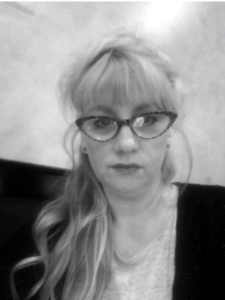 S. C. Beckner is a freelance writer and essayist. She has an MFA from the University of North Carolina Wilmington. She was a 2021 Rona Jaffe Scholarship Recipient for the Bread Loaf Writers Conference. Her essay “Inheritance” won the Blood Orange Review 2021 Creative Nonfiction Award. S.C. resides in Wilmington, NC where she writes, hikes, and walks the beaches with her two dogs.
S. C. Beckner is a freelance writer and essayist. She has an MFA from the University of North Carolina Wilmington. She was a 2021 Rona Jaffe Scholarship Recipient for the Bread Loaf Writers Conference. Her essay “Inheritance” won the Blood Orange Review 2021 Creative Nonfiction Award. S.C. resides in Wilmington, NC where she writes, hikes, and walks the beaches with her two dogs.


